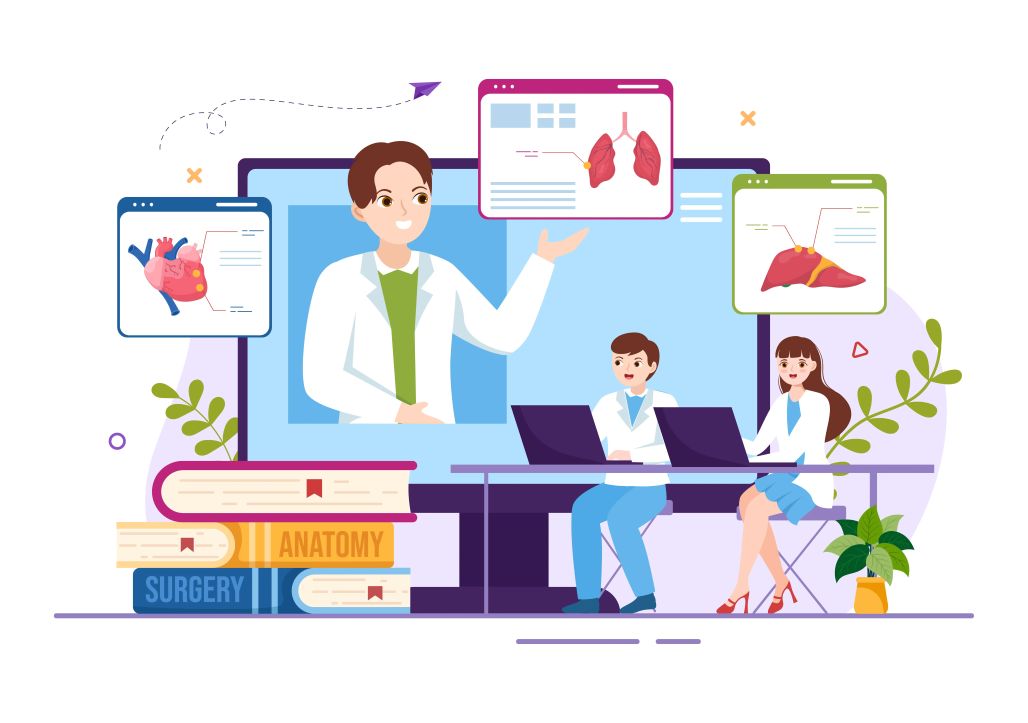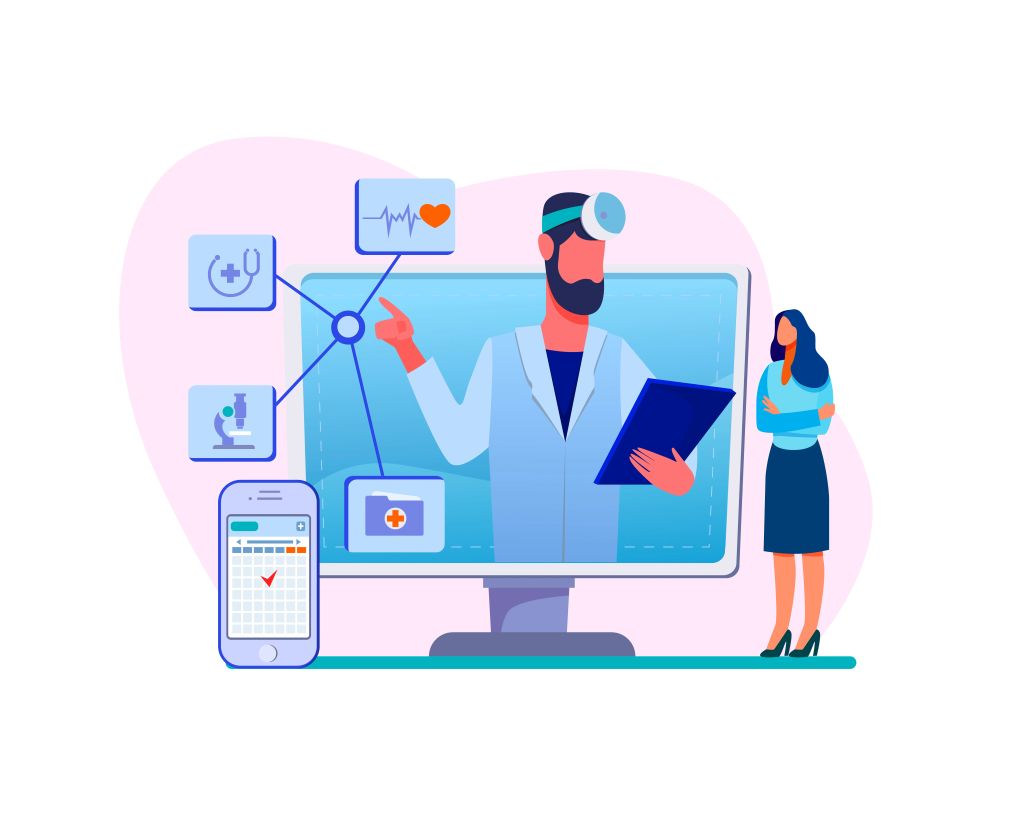
In the fast-paced and highly regulated healthcare industry, staying up-to-date with the latest medical practices, protocols, and compliance requirements is not just important—it’s critical. Implementing a learning management system healthcare (LMS) specifically designed for healthcare training offers a streamlined, efficient, and engaging way to achieve these goals, delivering measurable LMS benefits for both staff and patients. Continuous learning is essential for healthcare professionals to deliver safe, high-quality patient care while meeting stringent regulatory standards. Implementing a Learning Management System (LMS) specifically designed for healthcare training offers a streamlined, efficient, and engaging way to achieve these goals.
An LMS allows healthcare organizations to centralize training, track compliance, and provide personalized learning experiences that cater to the diverse needs of staff—from new hires to seasoned professionals. Platforms like Calibr Learn make it possible to deliver AI-powered, mobile-friendly, and interactive training that enhances knowledge retention, supports skill development, and ultimately improves patient outcomes. By adopting an LMS, healthcare institutions can ensure a competent, compliant, and motivated workforce, ready to meet the challenges of modern healthcare delivery.
Statistics Highlighting the Impact of LMS in Healthcare Training:
60% Reduction in Compliance Violations: Organizations implementing healthcare Learning Management System (LMS) platforms report up to a 60% reduction in compliance violations, demonstrating the effectiveness of centralized and automated compliance training. eLeaP
30% Improvement in Onboarding Efficiency: Healthcare institutions have experienced a 30% improvement in onboarding efficiency, allowing new staff to become proficient more quickly and reducing the time to full productivity. eLeaP
68% Cost Savings: eLearning saves an average of 68% on trainer employment, transportation, and extra classroom accommodation, making it a cost-effective solution for healthcare organizations. Levelup LMS
By leveraging these statistics, healthcare organizations can make informed decisions about implementing an LMS to enhance training effectiveness, ensure compliance, and reduce costs also it highlight how LMS for Healthcare Training and LMS in healthcare systems improve staff performance while maintaining regulatory compliance
Explore how Calibr Learn can transform your healthcare training programs. Learn more about Calibr Learn and take the first step toward a smarter, more compliant, and highly engaged workforce or contact us for more details
Top 10 Benefits of Using a Learning Management System

1. Streamlined Healthcare Compliance Training
Healthcare organizations must adhere to strict regulations such as HIPAA, OSHA, and CMS standards. Failing to comply can lead to serious legal and financial consequences. By using the best LMS for healthcare, organizations ensure all staff follow standardized protocols while gaining the full advantages of LMS for healthcare training. An LMS centralizes healthcare compliance training, making it easier to deliver consistent, up-to-date courses to all staff. Automated tracking, reminders, and reporting features simplify audits and reduce compliance risks.
Platforms like Calibr Learn enhance this process further by offering AI-powered personalized learning paths, which adapt training content to individual learner needs. This ensures that staff not only complete mandatory courses but also retain the knowledge needed to apply it in real-world scenarios.
For more information on how LMS platforms specifically enhance critical compliance training, read our full blog on Healthcare Compliance Training: A Complete Guide with the Best LMS for Healthcare
2. Enhanced Patient Safety Through Standardized Training
Standardized training ensures that all healthcare professionals receive the same foundational knowledge and follow uniform protocols. This consistency reduces errors, improves patient outcomes, and fosters a culture of safety across the organization.
LMS platforms like Calibr Content Hub provide a centralized learning resource library where evidence-based practices, clinical guidelines, and safety protocols can be stored and accessed anytime. This ensures that staff are always up-to-date on the latest healthcare standards, regardless of their role or location.
3. Efficient Onboarding and Continuous Education
Onboarding new healthcare employees can be time-consuming and resource-intensive. An LMS accelerates this process by offering structured training modules that new hires can access remotely, allowing them to learn at their own pace without overwhelming supervisors.
Beyond onboarding, continuous education modules keep staff current with evolving medical practices and emerging healthcare technologies. Calibr Craft makes it easy for administrators to create and manage engaging content for both new hires and existing employees, ensuring learning is continuous, relevant, and tailored to specific roles.
4. Cost and Time Efficiency
Traditional classroom training requires physical space, instructor fees, printed materials, and travel costs—expenses that add up quickly for healthcare organizations. An LMS significantly reduces these costs by providing digital training accessible anytime, anywhere.
Moreover, online training saves staff time, allowing them to complete courses during downtime or from remote locations without interrupting daily operations. With Calibr Learn, organizations can deploy microlearning modules and mobile-friendly courses that reduce training time while increasing knowledge retention.
5. Improved Staff Retention and Engagement
Engaging training programs contribute directly to employee satisfaction and retention. An LMS supports varied learning styles with interactive modules, videos, quizzes, and assessments. Gamification features such as points, badges, and leaderboards make learning enjoyable and motivating.
Platforms like Calibr also provide real-time analytics, helping managers track progress and recognize achievements, which boosts morale and encourages continuous participation in learning programs. A motivated, engaged workforce is more likely to stay with the organization, reducing turnover and strengthening institutional knowledge.
6. Seamless Integration with Existing Systems
Modern healthcare organizations rely on multiple software systems, from Electronic Health Records (EHR) to Human Resource Management Systems (HRMS). Modern LMS for healthcare organisations integrate with EHRs and HRMS systems, combining efficiency with scalability for diverse teams.
Platforms like Calibr support single sign-on (SSO) and smooth integration with existing systems, allowing employees to access training without additional login hurdles. This connectivity ensures that training data is automatically synced, making compliance reporting and performance tracking much easier.
7. Scalability to Meet Organizational Growth
As healthcare organizations grow, their training requirements become more complex. An LMS can scale effortlessly to accommodate more learners, expand content offerings, and customize training for different departments or regions.
With Calibr Content Hub, administrators can quickly add new courses or update existing content to meet organizational changes, ensuring that training programs evolve alongside the institution. This flexibility supports long-term workforce development without additional administrative burden.
8. Robust Reporting and Analytics
Tracking training progress, completion rates, and assessment results is critical in healthcare to maintain compliance and measure effectiveness. LMS platforms provide detailed analytics and reporting dashboards to help administrators make data-driven decisions.
Features like Calibr’s real-time analytics enable managers to identify knowledge gaps, monitor engagement, and ensure that staff complete mandatory compliance training on schedule. These insights help optimize learning programs and demonstrate ROI for training investments.
9. Enhanced Collaboration and Knowledge Sharing
Healthcare professionals often work in teams, and collaboration is essential for sharing best practices, insights, and problem-solving strategies. Many LMS platforms include social learning features such as discussion forums, group projects, and peer-to-peer feedback.
Platforms like Calibr support collaborative learning, enabling teams to interact, share knowledge, and learn from each other in a structured digital environment. This fosters a culture of continuous improvement, strengthens teamwork, and enhances overall organizational learning.
10. Adaptability to Diverse Learning Needs
Healthcare staff have varying learning preferences, schedules, and levels of expertise. An LMS that supports mobile learning, self-paced courses, and multilingual content ensures that all employees can access training in a way that suits them best.
With Calibr’s mobile-friendly platform and personalized learning paths, learners can engage with content anytime and anywhere, ensuring consistent training outcomes across diverse teams and geographies. This adaptability helps organizations maintain high competency standards, regardless of workforce size or location.
How It Works in Practice
Imagine a large hospital onboarding a batch of new nurses while simultaneously rolling out updated protocols for patient safety and infection control. Traditionally, this would require multiple classroom sessions, printed manuals, and hours of supervision—leading to inconsistent training and potential knowledge gaps.
With a modern LMS like Calibr, the process becomes streamlined and highly efficient. New hires can access AI-powered personalized learning paths tailored to their role, complete microlearning modules on mobile devices, and take assessments that automatically track progress. Supervisors receive real-time analytics on completion rates, assessment scores, and areas needing improvement, enabling targeted follow-ups.
For instance, if the infection control module shows that a subset of staff struggled with a particular procedure, the LMS can automatically assign a refresher course to those individuals. Collaborative features also allow staff to discuss practical scenarios and share best practices through forums or team challenges, enhancing retention and application in real-world situations.
By using Calibr , the hospital achieves multiple benefits simultaneously: streamlined compliance training, improved patient safety, faster onboarding, cost and time savings, higher staff engagement, seamless integration with existing systems, scalable training, robust analytics, enhanced collaboration, and adaptable learning paths for diverse staff needs.
Experience how Calibr can transform healthcare training in your organization—start optimizing learning outcomes today
BRINGING IT ALL TOGETHER
Implementing an LMS for healthcare training goes beyond simply meeting compliance requirements. It plays a pivotal role in enhancing patient safety, improving staff competency, and ensuring that healthcare organizations operate efficiently. By providing standardized, accessible, and engaging training, an LMS empowers healthcare professionals to stay up-to-date with the latest protocols, medical practices, and regulatory standards.
Platforms like Calibr, with features such as AI-powered personalized learning paths, mobile accessibility, microlearning modules, and real-time analytics, make it easier for healthcare organizations to deliver training that is both effective and measurable. These tools not only simplify administrative tasks like tracking compliance but also create a more motivated and skilled workforce.
By embracing modern LMS in healthcare and healthcare learning management systems like Calibr, organizations can deliver scalable LMS for Healthcare Training while ensuring staff are competent, compliant, and motivated. Discover how your organization can revolutionize healthcare training with Calibr – sign up for a 14 days free trail or contact us or schedule a demo and take the first step toward a smarter, more compliant, and highly engaged workforce.


